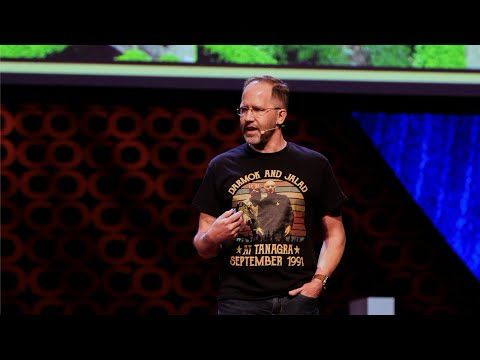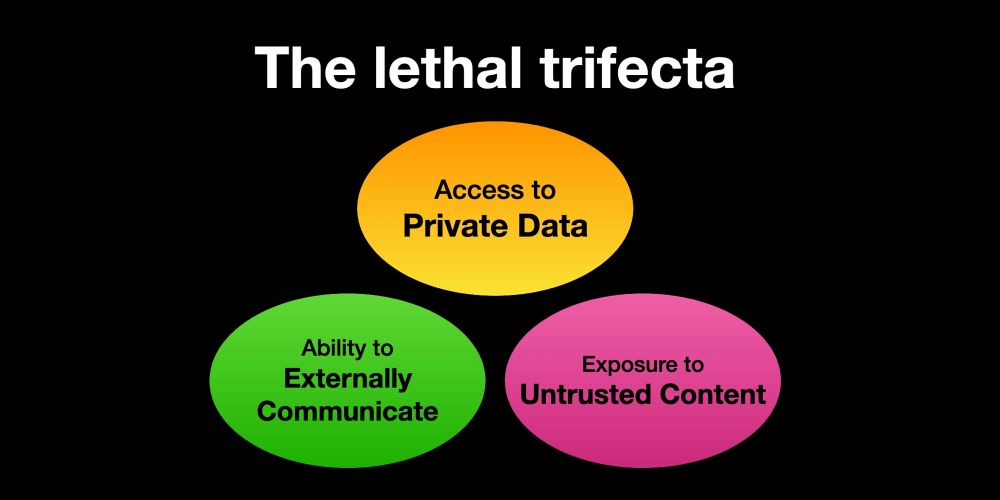
. @suksr.bsky.social with @boicy.bovon.org : Start with problem space, not solutions. Integrate DDD, Wardley Maps & Team Topologies for adaptive systems that deliver real value.
05.02.2026 13:02 — 👍 3 🔁 1 💬 0 📌 0@suksr.bsky.social
Independent tech consultant from Hamburg, Germany. Author of "Architecture for Flow", combining #WardleyMapping, #DDD, and #TeamTopologies as a holistic approach to designing and building adaptive, socio-technical systems optimized for flow.

. @suksr.bsky.social with @boicy.bovon.org : Start with problem space, not solutions. Integrate DDD, Wardley Maps & Team Topologies for adaptive systems that deliver real value.
05.02.2026 13:02 — 👍 3 🔁 1 💬 0 📌 0
Architecture for Flow Workshop by @suksr.bsky.social gives you a coherent way to connect strategy, software design, and team organization so your system can adapt, continuously and sustainably.
Early Bird Tickets: Signup now and save your learning budget! www.avanscoperta.it/en/training/...

Most relevant IT books 2025, IMHO:
📕 "Architecture for Flow" by @suksr.bsky.social
📗 "User Needs Mapping" by @richallen.info
📘 "Frictionless" by @nicolefv.bsky.social and Abi Noda
📙 "Code Health Guardian" by Artie Shevchenko
Thank you for sharing your experience 🙏

Also on decisions, @gienverschatse.com ‘s very useful presentation during a recent VirtualDDD session:
www.youtube.com/watch?v=I-2T...
In short, the problem here is not that Signal ‘chose’ to run on AWS. The problem is the concentration of power in the infrastructure space that means there isn’t really another choice: the entire stack, practically speaking, is owned by 3-4 players. 11/
27.10.2025 10:38 — 👍 1388 🔁 230 💬 9 📌 28
📣THREAD: It’s surprising to me that so many people were surprised to learn that Signal runs partly on AWS (something we can do because we use encryption to make sure no one but you–not AWS, not Signal, not anyone–can access your comms).
It’s also concerning. 1/
 14.10.2025 18:55 —
👍 339
🔁 36
💬 6
📌 5
14.10.2025 18:55 —
👍 339
🔁 36
💬 6
📌 5
Als Journalist soll man ja immer irgendwie distanziert sein und so. Die #Chatkontrolle ist aber so gefährlich für Demokratie und IT-Sicherheit, dass wir alle lauter werden müssen. Macht heute mit bei den Aktionen, denn morgen entscheidet die Koalition: digitalegesellschaft.de/2025/10/der-...
06.10.2025 05:55 — 👍 850 🔁 392 💬 13 📌 8
📣 Germany's close to reversing its opposition to mass surveillance & private message scanning, & backing the Chat Control bill. This could end private comms-& Signal-in the EU.
Time's short and they're counting on obscurity: please let German politicians know how horrifying their reversal would be.
Jake's made a great synopsis of DHH. I first met DHH almost 25 years ago, spoke at his office, helped promote his products, hosted him at events. DHH thinks you can tell by *looking* whether someone is a "native". Because he thinks people who look like me can never belong to our countries. Fuck him.
02.10.2025 15:00 — 👍 272 🔁 53 💬 22 📌 2Finallyyyyyyy 👏. I have not received my copies, yet, but I am happy to see they arrived safely at your home, @vaughnvernon.bsky.social 🤗
26.09.2025 15:23 — 👍 3 🔁 1 💬 0 📌 0
Book: Architecture for Flow by Susanne Kaiser #DDD #DDDesign #domaindrivendesign #WardleyMapping #TeamTopologies
Last week, I received a box full of the new printed book "Architecture for Flow" by @suksr.bsky.social
It's available on InformIT(.com) now and from Amazon with 1-2 day delay, which is likely because it's selling like hotcakes:
#8 in Software Design & Engineering
⭐️⭐️⭐️⭐️⭐️
Order yours today!
Yes, the publisher offers epub and pdf formats for the eBook edition: www.informit.com/store/archit...
26.09.2025 09:11 — 👍 1 🔁 0 💬 1 📌 0YES, I KNOW 😭. Sorry for the inconvenience. I have already notified the publisher, but Amazon's supply chain is a black box to Pearson as well. The publisher's European warehouses are filling up this/next week with inventory, so I hope Amazon's warehouses will do the same. I will nudge them again.
26.09.2025 08:19 — 👍 1 🔁 0 💬 1 📌 0
EventStorming rules (by Alberto Brandolini) in full-colour mode with patterns applied to distinguish each color-coded sticky note from each other: blue (zig-zag pattern) sticky note for commands, pale yellow sticky note (no pattern) for aggregates, pink (wave pattern) sticky note for external system, orange (diagonally stripe pattern) for domain events, green (vertically stripe pattern) sticky notes for read models, purple (circular pattern) sticky note for policies.
The digital edition is in colour (if your reader/device/app supports colour). The printed edition is grayscale (illustrations) and b&w (text & code). I designed the illustrations with patterns so elements stay distinguishable even without color.
26.09.2025 08:14 — 👍 5 🔁 1 💬 1 📌 0
Architecture for Flow from Susanne Kaiser
Finally! The book that we all have been waiting for! @suksr.bsky.social
17.09.2025 07:33 — 👍 21 🔁 1 💬 1 📌 1
It will be the hottest book of 2025. Go get @suksr.bsky.social 's new book Architecture for Flow architectureforflow.com
#wardleymapping #ddd #teamtopologies
Ganz Deutschland sollte erfahren, was diesen Herbst in #Hamburg erkämpft werden kann. Die Zeiten sind hart, aber die Hoffnung lebt - solange wir laut bleiben. Spread the word. #Zukunftsentscheid
01.09.2025 15:53 — 👍 777 🔁 314 💬 15 📌 17
The academic practice of resistance: Learning solutions in the age of autocracy
Around the world, we are witnessing a disturbing rise in democratic backsliding, and academia is increasingly in the crosshairs.
blogs.egu.eu/geolog/...
1/3

My article on how Vibe Coding is shadow IT.
thenewstack.io/vibe-...
10/10
Monthly reminder: Many people have a book in them, but it takes a special kind of freak to leave the Land of Laziness, cross the Plains of Procrastination and Insecurity Mountain, find the Blade of No One Made You Do This, and use it to cut your chest open and yank that book out.
01.08.2025 13:16 — 👍 10666 🔁 1576 💬 431 📌 154
I just wanted to say, I’m probably more proud of this Ted talk than just about anything I’ve ever done so I’m gonna be absolutely useless for the next couple of weeks as I promote the shit out of this because I want you to watch it because it matters in the moment we are in youtu.be/dVG8W-0p6vg
17.07.2025 20:37 — 👍 991 🔁 273 💬 79 📌 93
NEW POST
Even with LLMs, @birgitta410.bsky.social still cares about the code: “LLMs are NOT compilers, interpreters, transpilers or assemblers of natural language, they are inferrers.
martinfowler.com/articles/exp...

Absolut sehenswert auch die 8-teilige Serie
👉 "Die Affäre Cum-Ex" www.zdf.de/serien/die-a... sowie die Dokumentation
👉 "Systemfehler: Der Cum-Ex Skandal" www.zdf.de/video/dokus/...

Screenshot des Artikels von tagesschau.de https://www.tagesschau.de/inland/innenpolitik/haushaltsplan-bundestag-100.html Headline: Auf der Suche nach mehr Geld Teaser-Bild: Bundesfinanzminister Lars Klingbeil Teaser-Text: Finanzminister Klingbeil stellt heute den Haushaltsplan für 2025 im Bundestag vor. Hitzige Debatten sind zu erwarten. Denn der Regierung fehlt in den kommenden Jahren Geld - trotz Rekordschulden.
Ich hätte da einen Tipp für Ihre "Suche nach mehr Geld", Herr Bundesfinanzminister @larsklingbeil.bsky.social. 28,5 Mrd. Euro an illegal hinterzogenen (!) Steuergeldern durch CumCum von den involvierten Banken jetzt zurückfordern. FÜR uns Bürger und Bürgerinnen!
www.finanzwende.de/kampagnen/cu...

I am coming at this not just as a code-writing system-designing person(that is my bread and butter yes), but also as a writer, a translator, an interpreter, an artist, a musician, a psychology and sociology double major, and a climate change advocate.
nombiezinja.com/word-things/...

Recent interview by InfoQ (🙏 @benlinders.bsky.social) about sociotechnical fitness. www.infoq.com/news/2025/05.... We talked about what it means to engage with sociotechnical complexity as a first-order challenge — not just treat it as a gnawing byproduct of scaling software or organizations.
18.06.2025 12:22 — 👍 4 🔁 2 💬 0 📌 0
If you use "AI agents" (LLMs calling tools in a loop) you need to be aware of the Lethal Trifecta
Combine access to private data, exposure to untrusted content and the ability to externally communicate and an attacker can trick the system into stealing your data simonwillison.net/2025/Jun/16/...

Want to build adaptive systems in a world of constant change? @suksr.bsky.social shares how Team Topologies, Wardley Mapping & DDD drive Architecture for Flow — tune in now! #DDD #TeamTopologies #WardleyMapping
28.05.2025 12:02 — 👍 5 🔁 1 💬 0 📌 0
Sketch notes of the Talks Evolving a legacy System by Susanne Kaiser
Thanks to @suksr.bsky.social for showing that is possible move away from legacy systems without a big bang (@ #codecrafts vienna).
Your team structure, software architecture, and business requriements are connected and need to evolve together to reach your target system structure.